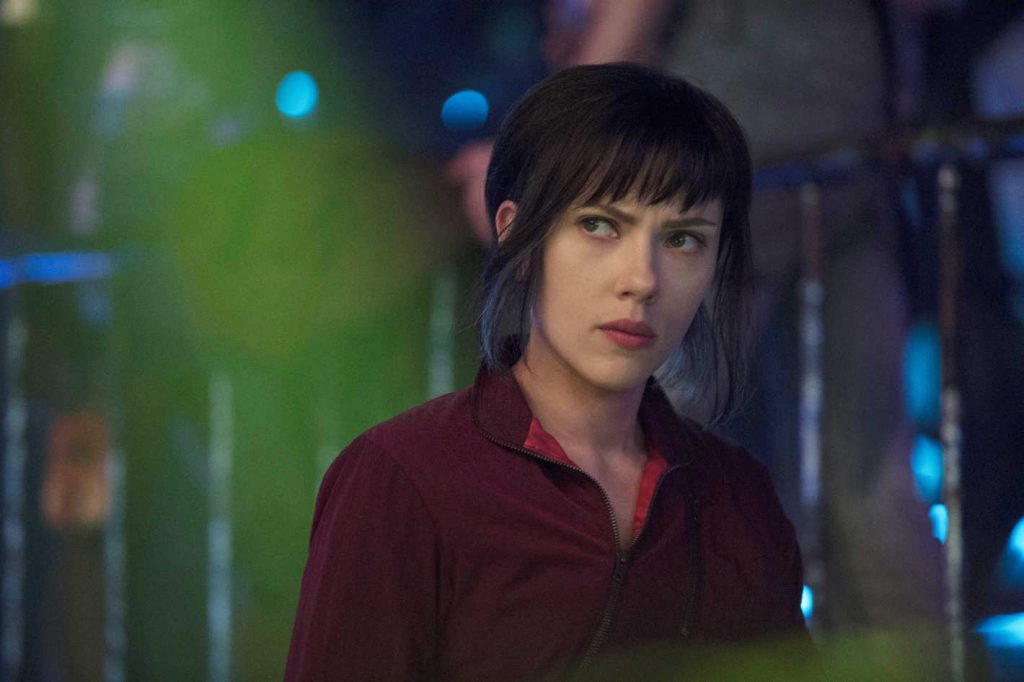Better than: Chips, holding a well-deserved 19% on Rotten Tomatoes.
Not as Good As: Ex Machina, 2014’s take on questions of AI and synthetic life.
You may also like: Inception, a different but much more exciting analysis of “what is real.”
Ghost in the Shell has already been shouted down for “whitewashing” its Tokyo-backdropped story after casting Scarlett Johansson as lonely cyborg Major. Based on a popular anime film of the same name from 1995, the Rupert Sanders directed action film has, in the words of one alarmingly passionate internet commenter, “bastardized” the source material.
With the anonymity, inherent and problematic as it is, of the internet, it can’t be guaranteed that this person was a fan of the original, but it is a safe assumption. The other possibility, of course, is that the controversy has drawn the regulars: protesters who shout at whatever is popular to shout at, a “professionally offended.”
While whitewashing would be hard to ignore in most cases, I do not think that Paramount Studios has an evil agenda against people of colour; I think they are using the situation to their advantage.
For disclosure, I see myself as an unbiased viewer of Ghost — I have not seen the original, so I am not prejudiced by comparisons, and I don’t think casting Scarlett Johansson was the grave Hollywood sin it has been made out to be.
For a property that has a cult following but little mass market appeal outside of its original fans, the movie would never have been made if it was unable to attach a major name. There are very few young Asian actresses who can perform in a superhero age action movie and sell enough tickets. Which in itself is the real Hollywood problem with whitewashing: there are few roles that are written for minority performers, which deters hopefuls who could fit the bill from entering the industry.

With this sensitive issue the driving force behind Ghost in The Shell’s publicity, it is important to note that as the movie, all else ignored, is a solid C. Its story lacks emotional punch and pacing, and relies too much upon Johansson’s star power.
She sells the action scenes and little else, unfortunately, coming across as robotic. While this may have been intentional given the nature of her character, most of her somewhat sparse dialogue falls short.
As an action-drama based on a Japanese anime from 20 years ago, releasing in March around much better action movies (see Imprint’s reviews of John Wick 2 and Logan) it would not be much of a draw on its own.
While it is nice to see a female-lead film, especially in a genre dominated by testosterone and red-coloured corn syrup, its generic sci-fi schtick evens it out to a very standard standalone. Especially when considering its budget, an astronomical $110 million which seems to have vanished into thin air, the film would never have made its money back on the merits of its product alone.
As it stands, prospects are limited; with the tide of “whitewashing” accusations providing free publicity however, it is not dead in the water just yet.
Its characters, on the other hand, may as well be.































